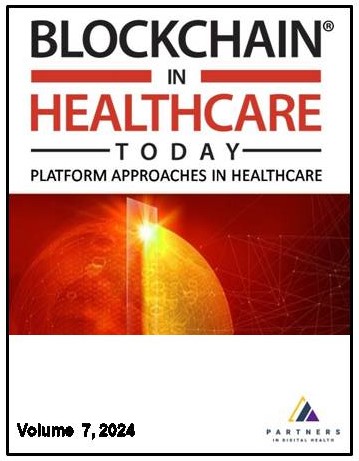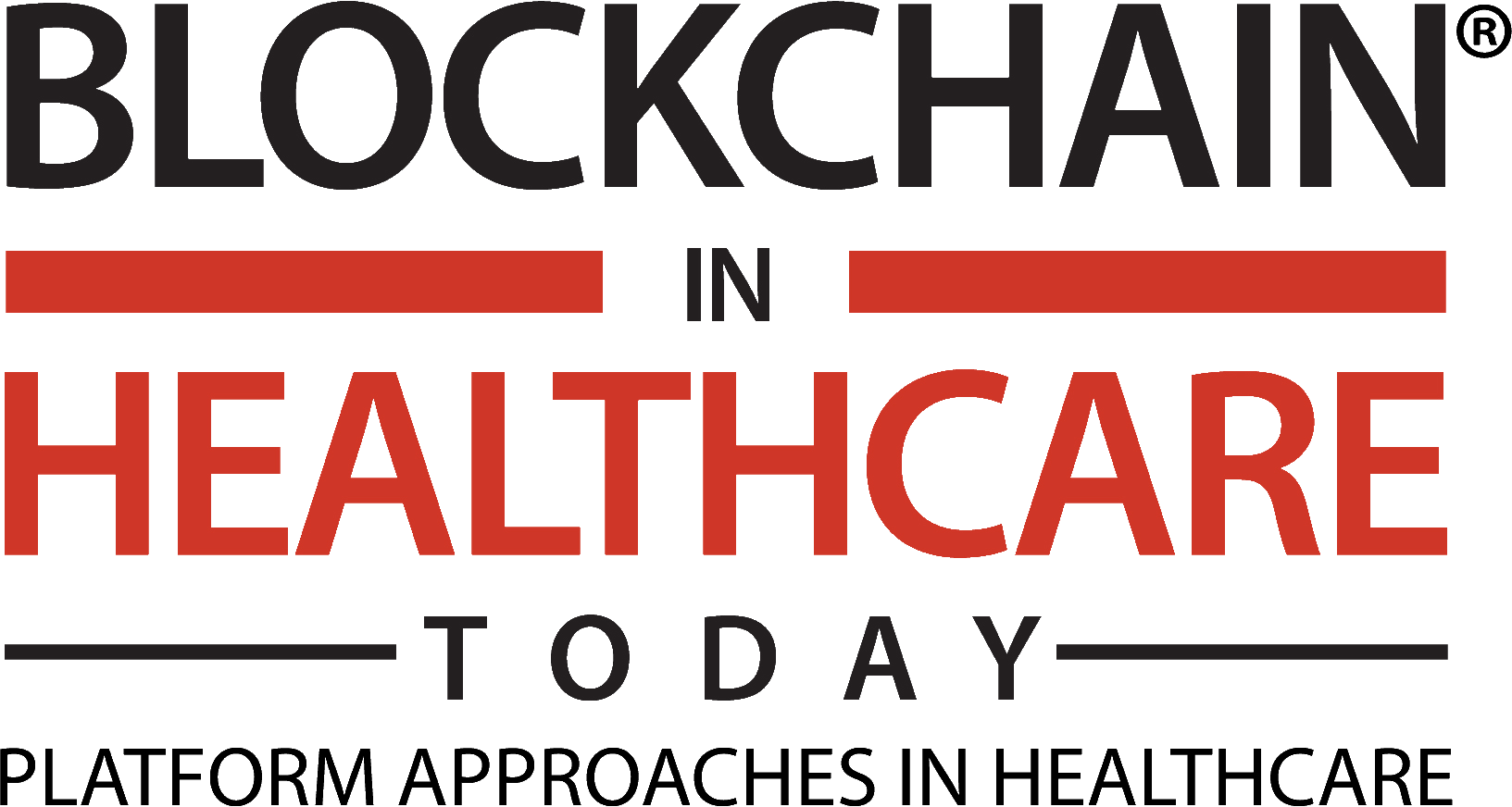Current issue

Volume 7, Issue 3, 2024
Online ISSN: 2573-8240
Volume 7 , Issue 3, (2024)
Published: 16.12.2024.
Open Access
Blockchain in Healthcare Today (BHTY) is the leading international open access journal that amplifies and disseminates platform approaches in healthcare and distributed ledger technology research and innovations. Fields of interest include healthcare information systems, leveraging data science tools and techniques, interoperability, consent mechanisms, privacy preservation, security of health data, clinical trials management, supply chain management, revenue cycle automation, immersive technologies, tokenomics, governance, regulation, network technologies, clinical computing, cryptography, and failed experiments in this expanding specialty field of research.
All issues
Contents
21.10.2022.
Discussion
A Proposal for Decentralized, Global, Verifiable Health Care Credential Standards Grounded in Pharmaceutical Authorized Trading Partners
The twin forces of privacy law and data breaches have fundamentally challenged how we collect, store, and share sensitive information. Within this landscape, healthcare information is sacrosanct – and intimately tied to identity and data ownership. Building on prior work with UCLA Health, Genentech (a member of the Roche Group), Sanofi, Amgen, Biogen, and others, we offer this opinion piece to promote the development of a standard for decentralized Verifiable Credentials (VCs). This will empower Authorized Trading Partners (ATPs) in the pharmaceutical supply chain to trade and exchange information in compliance with the US federal law. Starting with credentialing and interoperability for the ATP community, our ultimate goal was to chart a path to a global standard for all health care VCs – providing individuals and health-care professionals control over their own data. By sharing our results and releasing essential components of the work to the public domain, we hope to align and connect with other foundational efforts, thus evolving standards within a truly open framework with broad stakeholder involvement.
Victor Dods, Ben Taylor
21.10.2022.
Use Cases
The Last Mile: DSCSA Solution Through Blockchain Technology: Drug Tracking, Tracing, and Verification at the Last Mile of the Pharmaceutical Supply Chain with BRUINchain
Purpose: As part of the FDA’s DSCSA Pilot Project Program, UCLA and its solution partner, LedgerDomain (collectively referred to as the team hereafter), focused on building a complete, working blockchain-based system, BRUINchain, which would meet all the key objectives of the Drug Supply Chain Security Act (DSCSA) for a dispenser operating solely on commercial off-the-shelf (COTS) technology. Methods: The BRUINchain system requirements include scanning the drug package for a correctly formatted 2D barcode, flagging expired product, verifying the product with the manufacturer, and quarantining suspect and illegitimate products at the last mile: pharmacist to patient, the most complex area of the drug supply chain. The authors demonstrate a successful implementation where product-tracing notifications are sent automatically to key stakeholders, resulting in enhanced timeliness and reduction in paperwork burden. At the core of this effort was a blockchain-based solution to track and trace changes in custody of drug. As an immutable, time-stamped, near-real-time (50-millisecond latency), auditable record of transactions, BRUINchain makes it possible for supply chain communities to arrive at a single version of the truth. BRUINchain was tested with real data on real caregivers administering life-saving medications to real patients at one of the busiest pharmacies in the United States. Results: In addition to communicating with the manufacturer directly for verification, BRUINchain also initiated suspect product notifications. During the study, a 100% success rate was observed across scanning, expiration detection, and counterfeit detection; and paperwork reduction from approximately 1 hour to less than a minute. The authors demonstrate a successful implementation where product-tracing notifications are sent automatically to key stakeholders, resulting in enhanced timeliness and reduction in paperwork burden. At the core of this effort was a blockchain-based solution to track and trace changes in custody of drug. As an immutable, time-stamped, near-real-time (50-millisecond latency), auditable record of transactions, BRUINchain makes it possible for supply chain communities to arrive at a single version of the truth. BRUINchain was tested with real data on real caregivers administering life-saving medications to real patients at one of the busiest pharmacies in the United States. Conclusions: By automatically interrogating the manufacturer’s relational database with our blockchain-based system, our results indicate a projected DSCSA compliance cost of 17 cents per unit, and potentially much more depending on regulatory interpretation and speed of verification. We project that this cost could be reduced with manufacturers’ adoption of a highly performant, fully automated end-to-end system based on digital ledger technology (DLT). In an examination of the interoperability of such a system, we elaborate on its capacity to enable verification in real time without a human in the loop, the key feature driving lower compliance cost. With 4.2 billion prescriptions being dispensed each year in the United States, DLT would not only reduce the projected per-unit cost to 13 cents per unit (saving $183 million in annual labor costs), but also serve as a major bulwark against bad or fraudulent transactions, reduce the need for safety stock, and enhance the detection and removal of potentially dangerous drugs from the drug supply chain to protect U.S. consumers.
William Chien, Josenor De Jesus, Ben Taylor, Victor Dods, Leo Alekseyev, Diane Shoda, Perry B. Shieh
